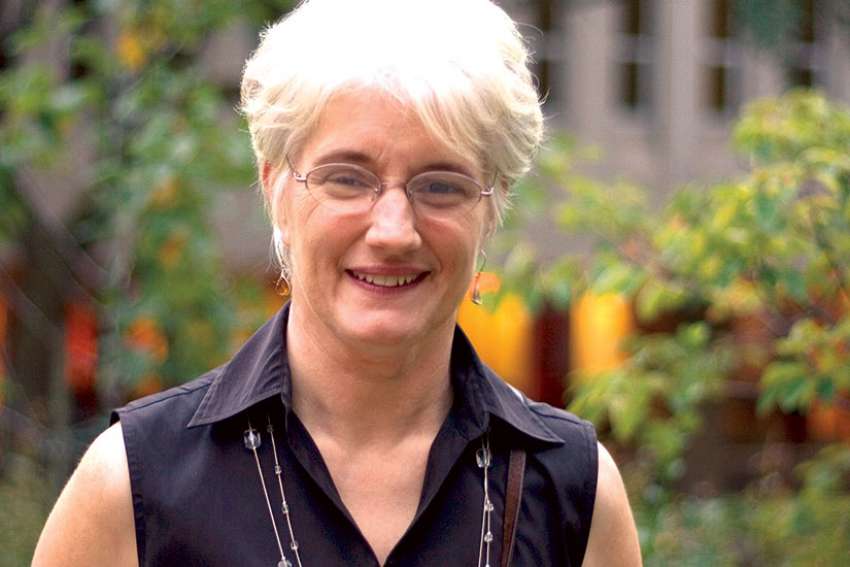The Toronto-based deVeber Institute issued a report April 4, titled “Abortions and Maternal Mortality in Developing Countries,” in response to the federal government’s commitment to help fill a $600-million funding gap created by U.S. President Donald Trump’s decision to ban funding for international groups involved with abortions.
“This is dangerous stuff,” said Martha Crean, deVeber co-president. “You’re imposing on the families in developing countries more deaths for women during their reproductive years and more health and fatality risks for other (potential future) babies.”
The Liberals pledged $650 million over the next three years for sexual health and family planning initiatives, including state-funded abortions. These funds, announced in early March on International Women’s Day, will go to five organizations known to promote abortion, including the International Planned Parenthood Federation, Marie Stopes International and UNFPA (the United Nations Populations Fund).
Crean said Trudeau is putting the morality of Canadians on the line.
“Canada is on the edge of practising cultural and economic imperialism when we go so far as to say that we will push for abortions in countries that do not now allow it,” Crean said. “Isn’t this kind of a ‘we know better’ mentality that we just got out of with the native schools?
“If what you are mainly struggling with is a lack of medical care and food and clean water and someone from outside offers to abort your pregnancy, isn’t this a message of something other than support?”
Canada’s Minister of International Development, Marie-Claude Bibeau, justified the funding by claiming that restricting access to abortion “does not reduce abortion. It only increases the number of unsafe abortions and it endangers the lives of women.”
Crean, however, said there are negative, longer-term impacts of the procedure.
“If a woman has an abortion it is statistically clear that her chances of having a prematurely born infant in subsequent pregnancies goes up,” she said. “So an abortion now can result in a greater risk of prematurity later (and) prematurity is directly linked to cerebral palsy.”
Crean points to Poland, which banned abortions in 1989 following the fall of the Soviet Union.
“Poland is a shining example of a decrease, a rapid decrease, in cerebral palsy and deaths from cerebral palsy,” she said. “And cerebral palsy is directly linked, not only but frequently, to premature birth and premature birth is a risk if you have an abortion.”
According to data from the Poland Central Statistical Office, which was published in UNICEF’s The State of the World’s Children in 2009, deaths related to cerebral palsy in children five years or younger declined from about 130 per 1,000 prior to the abortion ban to six per 1,000 in 2006.
The World Health Organization estimates that between 60,000 and 75,000 women’s lives are lost annually due to unsafe abortions, which it defines as “a procedure for terminating an unintended pregnancy carried out either by persons lacking the necessary skills or in an environment that does not conform to minimal medical standards, or both.”
Although those statistics may argue for improving abortion conditions internationally Crean considers it a signal to ban the practice once and for all.
“(And) we’re not even talking about the babies that are aborted. Abortion is a sign that the needs of women have not been met. We need to meet the needs.”
Rather than spending money on abortion, Crean would rather see funds used to combat famine and drought, lack of medical transportation and community-based education on emergency medical care.
“Some of the things we’ve talked about, they sound so basic but they don’t come from the sky,” she said. “They have to be prioritized and sadly women and infants often aren’t prioritized.”
Other means of improving maternal mortality, as noted in deVeber’s recent release, include skilled attendants at birth, emergency obstetric care and community outreach.
But for those efforts to be effective they must be tailor-made, said Crean.
“We can provide community education about health outcomes for pregnancies and babies,” she said. “Culturally appropriate taught within the community by the community and not superimposed.”
She praised former Conservative government initiatives to promote maternal health in the developing world and for consulting Canadians first, something she says the Liberals did not do.
“That was something the Conservative government consulted a lot of people on and developed a very positive package on maternal health that nobody could say that they didn’t want,” she said. “Some people said they wanted other things (added) in that package, but no one disagreed with what was in that pack. Now it is like it is a political statement at the cost to women.”
The Liberal government did not respond to The Catholic Register’s interview request.

